Making vegan soup with an immersion blender is a great...
Read More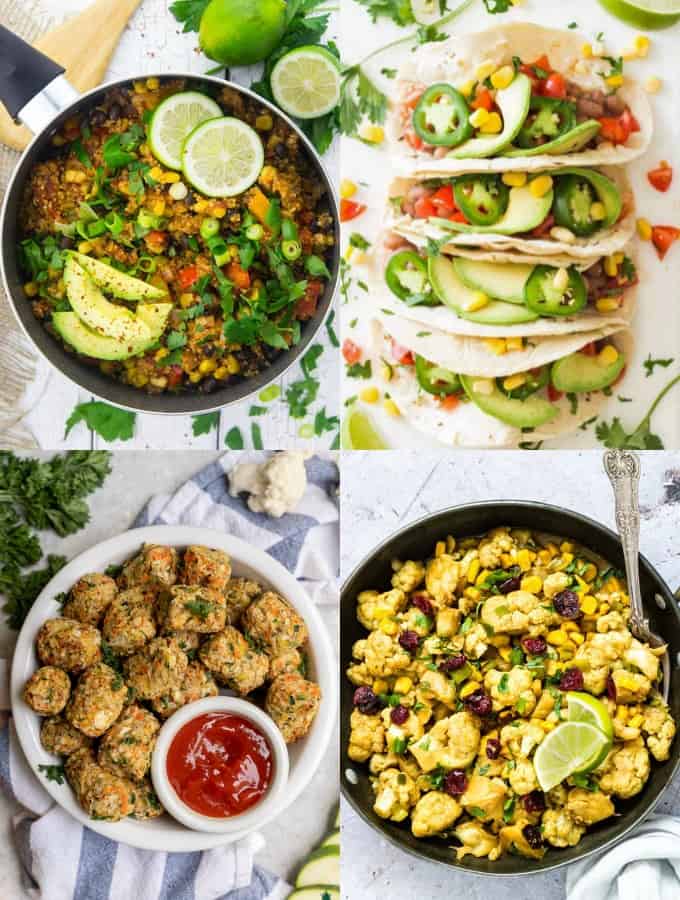
Vegan recipes are plant-based culinary creations that do not contain any animal-derived ingredients, including meat, dairy, eggs, and honey. Veganism is a lifestyle and dietary choice that seeks to avoid the use of animal products for ethical, environmental, and health reasons.
Vegan recipes can be incredibly diverse, ranging from delicious plant-based versions of traditional dishes to creative and innovative plant-based meals that highlight the flavors and textures of fruits, vegetables, legumes, grains, nuts, seeds, and other plant-based ingredients.
Vegan recipes can provide a wide range of nutrients, including fiber, vitamins, minerals, and antioxidants, and can be enjoyed by those following a vegan lifestyle, as well as anyone looking to incorporate more plant-based meals into their diet.
Are vegan recipes healthier?
Vegan recipes can be healthy, but it depends on the ingredients and cooking methods used. A vegan diet, which is entirely plant-based and excludes animal-derived foods like meat, dairy, eggs, and honey, can provide a wide range of health benefits when it is well-planned and balanced.
A well-planned vegan diet can be rich in fiber, vitamins, minerals, antioxidants, and healthy fats, and can be lower in saturated fat and cholesterol compared to diets that include animal-derived foods. Vegan diets can also be lower in calories and higher in complex carbohydrates, which can be beneficial for weight management and overall health.
Research suggests that a well-balanced vegan diet can be associated with lower risks of heart disease, type 2 diabetes, certain cancers, and other chronic health conditions. It can also be beneficial for weight management, digestive health, and overall gut health due to the high fiber content of plant-based foods.
However, it’s important to note that not all vegan recipes are automatically healthy. Vegan junk food, such as heavily processed foods, sugary desserts, and fried foods, can still be high in calories, unhealthy fats, and added sugars, which may not contribute to a healthy diet. Just like any other diet, the healthiness of a vegan diet depends on the quality and quantity of the ingredients used, as well as the overall balance and variety of the meals.
When following a vegan diet, it’s important to ensure that you are getting all the essential nutrients your body needs, such as protein, vitamin B12, iron, calcium, omega-3 fatty acids, and others. Proper planning and attention to nutrient intake are necessary to ensure that a vegan diet is nutritionally balanced and supports overall health.
In summary, vegan recipes can be healthy when well-planned, balanced, and made with wholesome, minimally processed ingredients. It’s important to prioritize a variety of whole plant-based foods and pay attention to nutrient intake to ensure a well-rounded and nutritious vegan diet.
What is the most popular vegan food?
There are numerous popular vegan foods that are enjoyed by people following a plant-based lifestyle. Some of the most popular vegan foods include:
- Plant-based milk alternatives, such as almond milk, soy milk, coconut milk, and oat milk, which can be used in place of dairy milk in a variety of recipes and beverages.
- Legumes, including beans, lentils, and chickpeas, which are excellent sources of plant-based protein, fiber, and other essential nutrients. They can be used in a wide range of dishes, such as soups, stews, curries, salads, and more.
- Tofu and tempeh, which are made from soybeans and are versatile plant-based protein options that can be used in stir-fries, sandwiches, salads, and other dishes.
- Quinoa, a complete protein grain that is packed with fiber, minerals, and vitamins. It can be used as a base for salads, bowls, and other grain-based dishes.
- Avocado, a nutrient-rich fruit that is high in healthy fats, fiber, and antioxidants. It can be used in salads, sandwiches, spreads, and as a topping for various dishes.
- Nuts and seeds, including almonds, walnuts, chia seeds, and flaxseeds, which are rich in healthy fats, protein, and other essential nutrients. They can be used in a variety of recipes, including snacks, desserts, and dressings.
- Fresh fruits and vegetables, which form the foundation of a healthy vegan diet. A wide variety of fruits and vegetables can be used in salads, stir-fries, smoothies, roasted dishes, and more.
These are just a few examples of the most popular vegan foods, and there are countless other delicious plant-based ingredients and recipes to explore and enjoy. Vegan cuisine is diverse, flavorful, and nourishing, offering a wide array of options for those following a vegan lifestyle or anyone interested in incorporating more plant-based meals into their diet.
What does 100% vegan eat?
A person who follows a 100% vegan diet, also known as a strict vegan or a plant-based diet, avoids all animal-derived foods and ingredients, including meat, dairy, eggs, honey, and other animal products. Instead, a 100% vegan diet consists entirely of plant-based foods, such as fruits, vegetables, grains, legumes, nuts, seeds, and plant-based alternatives to animal-derived products.
Here are some examples of foods that a 100% vegan might eat:
- Fruits: Apples, bananas, oranges, berries, grapes, mangoes, etc.
- Vegetables: Leafy greens, broccoli, cauliflower, carrots, sweet potatoes, bell peppers, etc.
- Grains: Rice, quinoa, oats, whole wheat bread, pasta, etc.
- Legumes: Lentils, beans, chickpeas, tofu, tempeh, etc.
- Nuts and seeds: Almonds, walnuts, chia seeds, flaxseeds, sunflower seeds, etc.
- Plant-based milk and dairy alternatives: Almond milk, soy milk, coconut milk, cashew cheese, etc.
- Plant-based protein sources: Plant-based meat substitutes, such as veggie burgers, plant-based sausages, etc.
- Plant-based fats: Avocado, olive oil, coconut oil, etc.
- Plant-based sweeteners: Maple syrup, agave nectar, dates, etc.
A 100% vegan diet can be diverse, delicious, and nutritionally balanced when well-planned and includes a wide variety of plant-based foods. It can provide all the necessary nutrients for a healthy lifestyle, including protein, fiber, healthy fats, vitamins, minerals, and antioxidants. However, as with any diet, it’s important to pay attention to nutrient intake and ensure a balanced and varied diet to meet all the body’s nutritional needs.
What are the 4 types of vegans?
There are several different types of vegans, each with their own specific approach to plant-based eating. Some of the commonly recognized types of vegans include:
- Dietary vegans: These are individuals who follow a vegan diet and avoid all animal-derived foods, but may still use or wear animal products in other aspects of their life, such as clothing or personal care products.
- Ethical vegans: Ethical vegans not only follow a vegan diet but also abstain from using or wearing any animal-derived products due to ethical concerns about animal exploitation, cruelty, and suffering. They may also be engaged in animal rights activism and advocate for the ethical treatment of animals.
- Environmental vegans: Environmental vegans choose a vegan lifestyle primarily for environmental reasons. They believe that animal agriculture has a significant negative impact on the environment, including deforestation, greenhouse gas emissions, water pollution, and resource depletion. They may adopt a vegan lifestyle as a way to reduce their ecological footprint and minimize their impact on the environment.
- Health-focused vegans: Health-focused vegans adopt a vegan diet primarily for health reasons, such as improving their overall health, reducing the risk of chronic diseases, and promoting weight loss. They may focus on consuming whole, plant-based foods and avoiding processed vegan foods that may be high in added sugars, refined grains, and unhealthy fats.
It’s important to note that these categories are not mutually exclusive, and many vegans may fall into multiple categories or have their own unique reasons for adopting a vegan lifestyle. The motivations for becoming vegan can vary from person to person, and individuals may have a combination of ethical, environmental, health, and other reasons for choosing a plant-based diet.
What is vegan for beginners?
Veganism for beginners is an approach to adopting a plant-based lifestyle for individuals who are new to veganism and seeking guidance on how to transition to a vegan diet and lifestyle. Here are some key tips for beginners:
- Educate yourself: Learn about the principles and values of veganism, including the ethical, environmental, and health aspects. Understand the reasons behind choosing a vegan lifestyle and the impact it can have on animals, the planet, and your health.
- Start with small changes: Begin by gradually incorporating more plant-based foods into your diet and reducing or eliminating animal-derived foods. Start with simple substitutions like plant-based milk, tofu, beans, lentils, and whole grains. Explore vegan recipes and try new foods to discover delicious plant-based options.
- Focus on whole foods: Incorporate a variety of whole, minimally processed plant-based foods, such as fruits, vegetables, legumes, nuts, seeds, and whole grains, into your meals. These provide essential nutrients and are the foundation of a healthy vegan diet.
- Plan your meals: Plan your meals in advance to ensure you have a well-balanced and nutritious diet. Include a variety of foods from all food groups, including protein, carbohydrates, healthy fats, vitamins, and minerals, to meet your nutritional needs.
- Read labels: Be mindful of animal-derived ingredients in packaged foods and learn to read labels to identify hidden animal products. Look out for ingredients such as meat, dairy, eggs, honey, and gelatin, which may be used in processed foods.
- Connect with the vegan community: Join online vegan communities, participate in vegan events or meetups, and connect with other like-minded individuals to gain support, share experiences, and get advice on living a vegan lifestyle.
- Consider supplementation: While a well-planned vegan diet can provide all the necessary nutrients, it’s important to pay attention to certain nutrients like vitamin B12, omega-3 fatty acids, vitamin D, and iron that may require special attention on a vegan diet. Consider talking to a registered dietitian or healthcare provider to ensure you are meeting your nutritional needs.
- Be compassionate: Remember that veganism is not just about diet, but also encompasses an ethical stance towards animals and the environment. Practice compassion towards animals, humans, and the planet in your everyday choices and actions.
- Be patient and kind to yourself: Transitioning to a vegan lifestyle takes time, and it’s important to be patient and kind to yourself. It’s okay to make mistakes and learn along the way. Celebrate your progress and focus on the positive impact you are making through your choices.
Remember, everyone’s journey to veganism is unique, and it’s important to find an approach that works best for you. Taking it step-by-step, seeking information and support, and being mindful of your nutrition can help you navigate your way towards a healthy and fulfilling vegan lifestyle.
Should a 14 year old go vegan?
The decision for a 14-year-old to go vegan should be made in consultation with their parents or guardians, and possibly with the guidance of a healthcare provider or registered dietitian. While a well-planned vegan diet can be healthy and provide all the necessary nutrients for people of all ages, including teenagers, it’s important to ensure that the teenager’s nutritional needs are met during this critical period of growth and development.
Here are some factors to consider when deciding if a 14-year-old should go vegan:
- Nutritional needs: Teenagers have specific nutrient requirements for growth and development, including protein, iron, calcium, vitamin B12, and omega-3 fatty acids. It’s important to ensure that these nutrients are adequately met through a well-planned vegan diet that includes a variety of plant-based foods, fortified foods or supplements as needed.
- Education and awareness: Going vegan requires understanding and awareness of the principles, values, and nutritional aspects of a vegan lifestyle. It’s important for the teenager to be informed and educated about the ethical, environmental, and health reasons behind choosing a vegan lifestyle.
- Willingness and commitment: Going vegan requires commitment and willingness to follow a plant-based diet and lifestyle. The teenager should be motivated and enthusiastic about adopting a vegan lifestyle, and should have a clear understanding of the dietary changes involved.
- Family support: Family support and involvement is crucial for a teenager to successfully adopt a vegan lifestyle. Parents or guardians should be supportive, informed, and willing to work together with the teenager to plan and prepare balanced and nutritious vegan meals.
- Overall health: The teenager’s overall health, including any existing health conditions, should be taken into consideration when deciding to go vegan. If the teenager has any health concerns or restrictions, it’s important to consult a healthcare provider or registered dietitian to ensure that a vegan diet is appropriate and safe.
- Balanced and varied diet: It’s important to emphasize the importance of a balanced and varied diet, including a wide variety of plant-based foods such as fruits, vegetables, legumes, whole grains, nuts, seeds, and fortified foods. Avoiding highly processed and junk foods, and focusing on nutrient-rich whole foods is essential for a healthy vegan diet.
In summary, the decision for a 14-year-old to go vegan should be made with careful consideration of their individual nutritional needs, education and awareness, willingness and commitment, family support, overall health, and emphasis on a balanced and varied diet. Consulting with a healthcare provider or registered dietitian can provide valuable guidance and support in making an informed decision.
What are the 5 most important rules of a vegan diet?
The following are five important rules to consider when following a vegan diet:
- Eat a balanced and varied diet: A vegan diet should include a wide variety of plant-based foods to ensure you get all the essential nutrients your body needs. This includes whole grains, legumes, fruits, vegetables, nuts, seeds, and plant-based protein sources like tofu, tempeh, seitan, and legumes. Aim for a well-rounded and diverse diet that provides adequate protein, healthy fats, vitamins, minerals, and other essential nutrients.
- Pay attention to protein: Protein is an important nutrient for vegans as it is essential for building and repairing tissues, supporting immune function, and many other physiological processes. Plant-based protein sources include legumes (such as lentils, chickpeas, and beans), tofu, tempeh, seitan, quinoa, nuts, seeds, and whole grains. Make sure to incorporate a variety of protein-rich foods in your diet to meet your protein needs.
- Ensure adequate vitamin B12 intake: Vitamin B12 is an essential nutrient that is found naturally only in animal-derived foods. Vegans should be mindful of getting adequate vitamin B12 through fortified foods, supplements, or fortified plant-based milk alternatives. Vitamin B12 is crucial for nerve function, red blood cell production, and overall health.
- Pay attention to key nutrients: While a vegan diet can be nutritionally adequate, it’s important to pay attention to certain nutrients that may require extra attention, such as iron, calcium, omega-3 fatty acids, and vitamin D. Incorporate iron-rich plant-based foods, such as dark leafy greens, legumes, nuts, and seeds, and pair them with vitamin C-rich foods to enhance iron absorption. Choose plant-based sources of calcium, such as fortified plant-based milk alternatives, leafy greens, and calcium-set tofu. Consider including plant-based sources of omega-3 fatty acids, such as flaxseeds, chia seeds, and walnuts, or consider an algae-based omega-3 supplement. Vitamin D can be obtained from sunlight exposure, fortified plant-based milk alternatives, or through supplements if needed.
- Read food labels and be mindful of hidden animal-derived ingredients: Vegan diets exclude all animal-derived products, including meat, poultry, fish, eggs, dairy, and honey. However, some processed foods may contain hidden animal-derived ingredients such as gelatin, honey, or animal-based food additives. Read food labels carefully and familiarize yourself with common animal-derived ingredients to ensure you’re following a strict vegan diet.
It’s important to note that a vegan diet can be nutritionally adequate and provide all the necessary nutrients for good health, but it requires careful planning and attention to key nutrients. Consulting with a registered dietitian or healthcare provider can be helpful in ensuring that you are meeting your nutrient needs on a vegan diet.
Is it smart to go vegan?
The decision to go vegan is a personal choice that depends on various factors, including ethical, environmental, and health considerations. For some individuals, adopting a vegan lifestyle can be a smart choice, while for others it may not be the best fit. Here are some factors to consider when deciding if going vegan is a smart choice for you:
- Ethical considerations: Many people choose to go vegan due to ethical concerns about animal welfare and the treatment of animals in the food industry. If you have strong ethical beliefs about animal rights and want to align your diet with those values, then going vegan may be a smart choice for you.
- Environmental considerations: Plant-based diets, including vegan diets, are generally considered more environmentally sustainable compared to animal-based diets. Choosing a vegan lifestyle can reduce your carbon footprint, water usage, and land use, which may be important to you if you prioritize environmental sustainability.
- Health considerations: A well-planned vegan diet can be nutritionally adequate and provide all the necessary nutrients for good health. Vegan diets can be high in fiber, vitamins, minerals, and antioxidants, and may be associated with lower risks of certain chronic diseases, such as heart disease, certain cancers, and type 2 diabetes. However, it’s important to ensure that you’re getting all the essential nutrients, such as protein, iron, calcium, vitamin B12, and omega-3 fatty acids, through a well-planned vegan diet or appropriate supplements.
- Personal health goals: If you have specific health goals, such as weight loss, improved digestion, or better management of certain health conditions, going vegan may align with those goals. However, it’s important to remember that simply adopting a vegan lifestyle does not guarantee good health. It’s still important to follow a balanced and varied diet, engage in regular physical activity, and practice other healthy lifestyle habits to achieve optimal health.
- Food preferences and enjoyment: Your food preferences and enjoyment of plant-based foods can also influence the decision to go vegan. If you enjoy a wide variety of fruits, vegetables, legumes, nuts, seeds, and whole grains, and feel satisfied with plant-based meals, then going vegan may be a good fit for you. However, if you have strong preferences for animal-based foods or find it challenging to maintain a balanced and enjoyable vegan diet, it may not be the best choice for you.
- Personal circumstances and convenience: Consider your personal circumstances, including your lifestyle, budget, access to plant-based foods, and convenience factors. If you have easy access to a variety of plant-based foods, enjoy cooking and meal preparation, and are willing to invest time and effort into planning and preparing vegan meals, then going vegan may be more feasible for you. However, if you have limited access to plant-based foods, have budget constraints, or face other practical challenges, it may require more effort to adopt and maintain a vegan lifestyle.
In conclusion, whether going vegan is a smart choice for you depends on your individual ethical, environmental, and health considerations, personal health goals, food preferences, and enjoyment, as well as your personal circumstances and convenience factors. It’s important to carefully consider all these factors and make an informed decision that aligns with your values, health goals, and lifestyle. Consulting with a healthcare provider or registered dietitian can also provide valuable guidance and support in making this decision.
3 best vegan recipes for beginners
Sure! Here are three easy vegan recipes for beginners:
- Vegan Chili: This hearty and flavorful vegan chili is easy to make and packed with plant-based protein. Heat a large pot over medium heat and add 1 diced onion, 1 diced bell pepper, and 2 minced garlic cloves. Cook until softened, then add 1 can of diced tomatoes, 1 can of black beans (drained and rinsed), 1 can of kidney beans (drained and rinsed), 1 can of corn (drained), 1 tablespoon chili powder, 1 teaspoon ground cumin, and 1/2 teaspoon smoked paprika. Simmer for 20 minutes, then serve with your favorite toppings.
- Vegan Pasta Salad: This colorful and flavorful pasta salad is perfect for a quick and easy meal. Cook 8 ounces of your favorite pasta according to package directions, then drain and rinse with cold water. In a large bowl, combine the pasta with 1 diced red bell pepper, 1 diced yellow bell pepper, 1 diced cucumber, 1/2 cup sliced black olives, and 1/4 cup chopped fresh parsley. In a small bowl, whisk together 1/4 cup olive oil, 2 tablespoons red wine vinegar, 1 teaspoon Dijon mustard, and salt and pepper to taste. Pour the dressing over the pasta salad and toss to combine.
- Vegan Banana Bread: This vegan banana bread is moist, tender, and perfect for breakfast or a snack. Preheat your oven to 350°F and grease a loaf pan. In a large bowl, mash 3 ripe bananas with a fork. Add 1/4 cup melted coconut oil, 1/2 cup brown sugar, 1 teaspoon vanilla extract, and 1/4 cup non-dairy milk, and whisk to combine. In a separate bowl, whisk together 1 1/2 cups all-purpose flour, 1 teaspoon baking soda, 1/2 teaspoon salt, and 1/2 teaspoon ground cinnamon. Add the dry ingredients to the wet ingredients and stir until just combined. Pour the batter into the prepared loaf pan and bake for 50-60 minutes, or until a toothpick inserted into the center comes out clean.
<< See more vegan recipes for 1 month challenge here!!>>
1 Month Vegan Challenge 2.0
Revised and Updated for 2022!! The 1 Month Vegan Challenge Is On Fire Right Now!! – Includes Vegan Recipes, 28 Day Meal Plan & Bonus Ebooks! Vegan Sales Page Converts Like A Monster and Higher Priced Upsells. Low Refunds Rates. 90% Comms For Super Affs.
Conclusion
In conclusion, vegan recipes can be simple, delicious, and nutritious, making them a great option for beginners who are interested in adopting a plant-based diet. With a wide variety of fruits, vegetables, grains, legumes, nuts, and seeds to choose from, there are endless possibilities for creating tasty vegan meals. Whether you’re looking for savory mains like chili or pasta salad, or sweet treats like banana bread, there are plenty of easy and satisfying vegan recipes to try.
Experiment with different flavors and ingredients to find your favorites, and enjoy the benefits of a plant-based diet for your health, the environment, and animal welfare. Happy cooking!
Related Posts
Why Trust Us
You will find what you are looking for at Jody's Bakery. From classic to luxury brands, you'll find both. We will help you to select appliances that fit your needs, budget and lifestyle. Whether you want to stop by to learn more — or plan to make a major purchase — we’ll treat you like family and assist you every step of the way. Shop with us today to receive friendly and experienced help along the way.







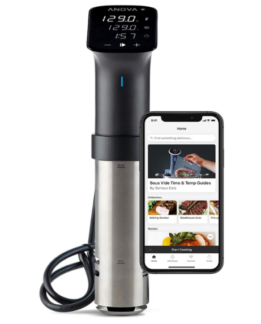
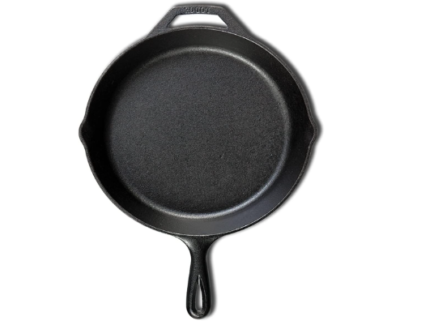
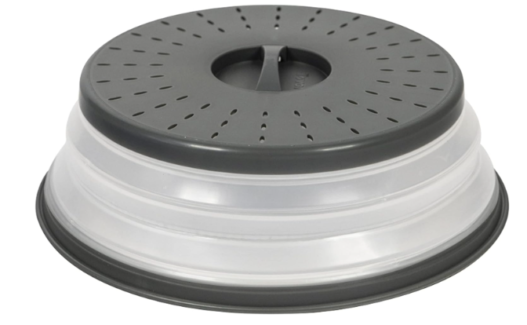
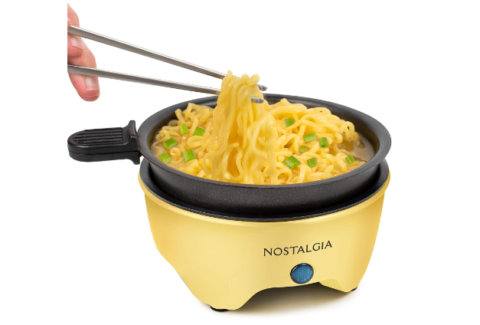
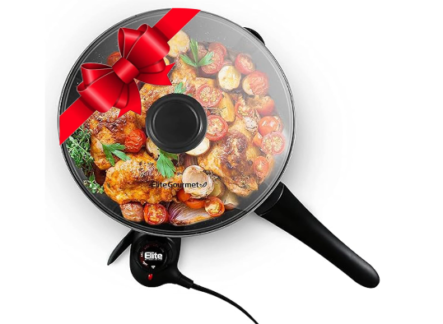
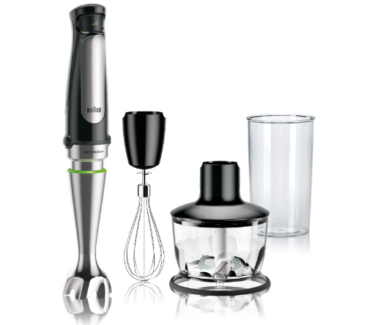
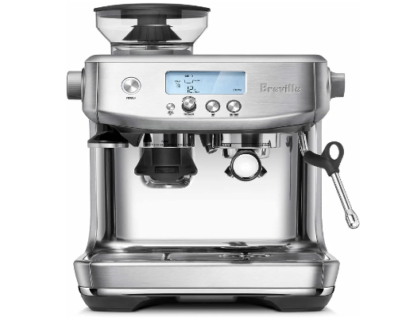
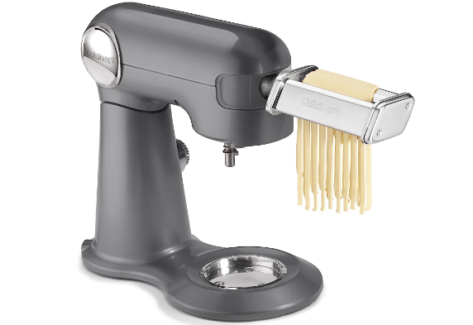
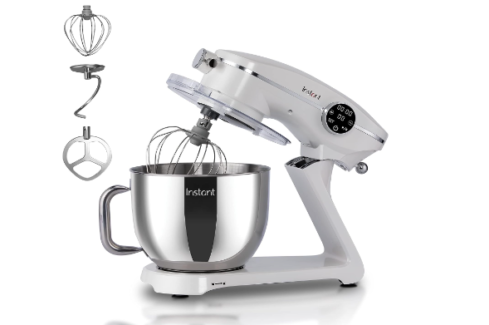

Very insightful article! Its great to see such well-researched content. Lets talk more about this. Click on my nickname for more!